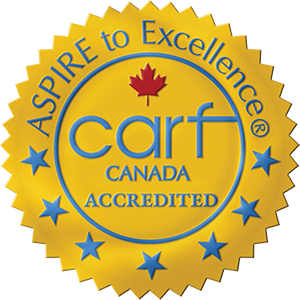Transitioning to CLBC 1
Eligibility, Facilitator
This is for those who are beginning to think about the world of CLBC, are in the process of transitioning to CLBC, or who have already transitioned but continue to be confused by the CLBC system.
Eligibility
First step is that you need to be eligible for CLBC – there are two streams:
Developmental Disability (DD) stream
The Developmental Disability (DD) stream requires both a cognitive and adaptive assessment (often called psychoeducational) done by a registered psychologist at the school or privately (I went private but we had a good medical plan at the time that covered the cost). The person must have a significant disability, both intellectually and adaptively, that occurred prior to the person’s 18th birthday, in order to meet this criterion.
Personal Support Initiative (PSI) stream
The Personal Support Initiative (PSI) stream the person must have a confirmed diagnosis by a registered psychologist of an autism spectrum disorder (ASD) or Fetal Alcohol Syndrome Disorder (FASD) and a signiticant adaptive disability (ie.: can this person live on his/her own independently?). The adaptive assessment needs to be completed no sooner than four years before the person turns 19 years of age.
The assessments should be forwarded to your local CLBC office. If you are receiving supports from a child and youth with support needs (CYSN) social worker, that worker should be able to assist you with the eligibility.
In many communities there is often a “waitlist” of assessments to be reviewed by a CLBC eligibility facilitator. They will, of course,, prioritize based when the person is turning 19 years of age. If you have not heard when the person is 17 years of age phone the local office to ask what is happening. You should then phone on a monthly basis.
Please note: it is CLBC policy that a staff member must get back to the caller within 2 working days. If you have not heard from someone at CLBC within that time frame, you should phone and ask to speak to the Regional Integrated Manager.
After Confirmation of Eligibility
In many communities, you may have access to a Services to Adults with Developmental Disability Navigator (STADD) who is there to assist with the transition planning to CLBC.
Once eligible, the persons with disabilities pension (PWD) process may be less work. You will have a letter from CLBC that confirms eligibility which can be attached to the PWD application (less paper work!!). Remember, if the person is living at home, an application for PWD can be made in 17.5 years. If the person is in foster care, the application for PWD is made at 18.5 years.

A facilitator will be assigned to you. In some local offices, the facilitator is assigned work on a monthly basis (unless urgent) and in other offices, the admin will assign a facilitator as soon as the eligibility has been confirmed. If you have not heard who your facilitator is a couple of months are receiving the eligibility confirmation letter, phone the local office and request one.
You may be invited to a Welcome to CLBC Workshop which is usually four sessions that provides an overview a to who CLBC is and what you can expect from them. These sessions are hosted by a CLBC facilitator, a CLBC analyst, a parent, and a self advocate.
Role of the Facilitator
The role of the facilitator is to assist in the planning of the person and to put forward requests from you for services as well as explore community opportunities.
Guide to Support Allocation Tool (GSA)
One of the first responsibilities of the facilitator is to complete a GSA that outlines the support needs of the person. This is a very important tool as it dictates the hours of one to one service the person may be eligible for (ie. if the person is assessed at a GSA level 3, the person is eligible for up to 12 hours per week of one to one support).
The areas the person will be assessed on are communication, personal care needs, creating and maintaining relationships, making day to day decisions, making important life decisions, safety within community, work and learning, community participation, complex health needs, and complex risks and actions.
Remember: like most people focused government systems, you are community with a system that is based on deficits. You must think of the person on his/her worst day when going through the tool. Always request a copy of the person’s GSA once completed.
Priority Ranking Tool (PRT)
The facilitator is also responsible for completing this tool. Again, this is a very important tool as it will inform CLBC where you are in terms of needing service in comparison to others.
This can be a challenging discussion because this tool is based on family circumstances. This is where you need to be vulnerable with respect to the challenges you are facing, the amount of stress you are experiencing, personal health issues, etc. You do not have access to the tool nor do you get a copy of it once completed.
Service Request Registry (SRR)
The SRR is another word for “waitlists”. The SRR is not based on a “first come, first serve” criteria except in the supported employment realm. The list for services are mainly based on the PRT, ranked from highest family need to lowest family need.

By Family Support Institute of BC

